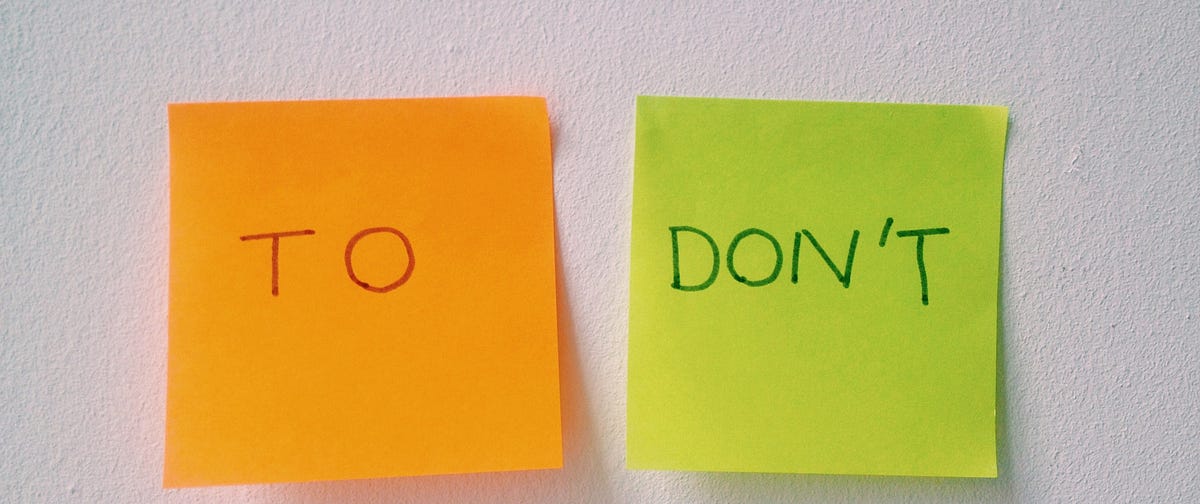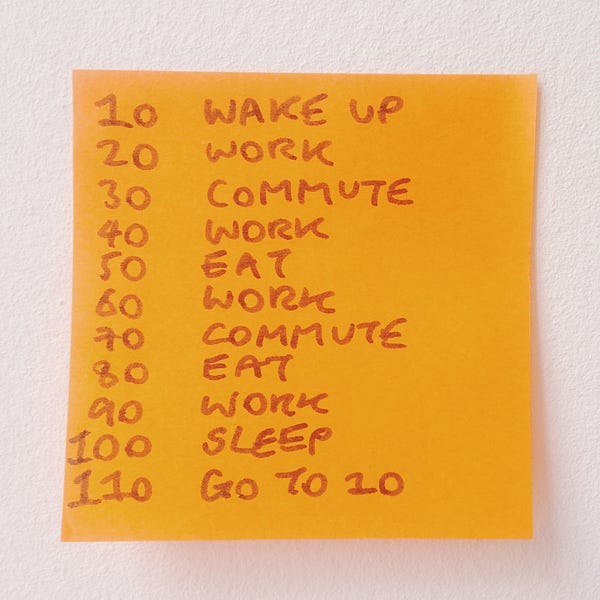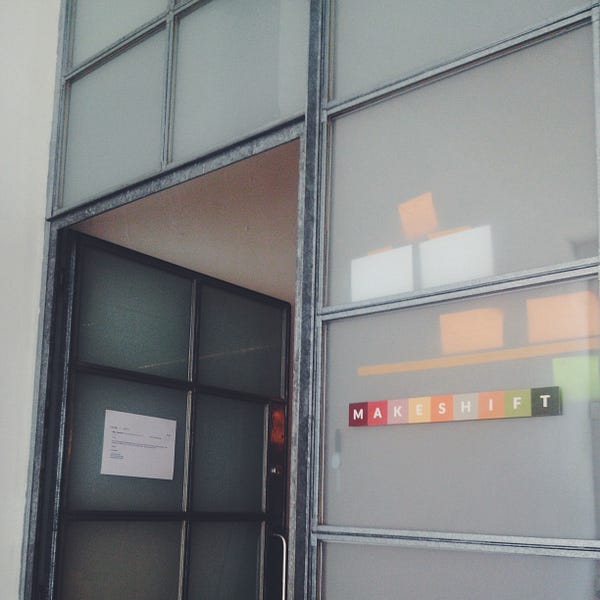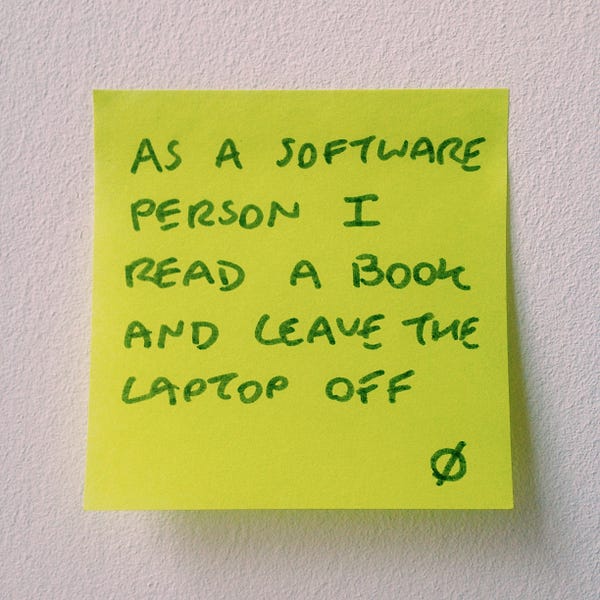What gets done is what gets done — Medium

What gets done is what gets done
How long working hours don’t help you in the long term
I often end the work week at Makeshift with the feeling that, although I’ve got a lot done, I’d need another whole week just to catch up. And that’s before I deal with the stuff that I’ll be facing the following week!
It’s easily solved, right? Work late, work the weekend, and just pull more hours. Wrong. You’re probably setting yourself up for a bunch of problems down the line if you tackle it this way.
I’ve been there – at my last startup I got into that habit, and I remember one week in particular where over a seven day period I did about 120 hours of work, and that was in an environment where I was regularly doing 90 as my general level of work. Looking back, I wish someone had taken me to one side and told me to chill out. So, I’m writing this for those of you who have the “but I’ve just got to do this one more thing” bug.
Work heroes

most basic
The first time you pull a late night, or do a full weekend of work, it’ll be because of a deadline, a launch, something that needs doing urgently. And there’s only one person that can save the day – that’s you, right?
You jump in, save the day, and get the warm glow of being the hero or heroine. High fives! Go team!
Except, you’ve just established something about your work ethic.
The way you get stuff done isn’t by having reasonable estimates of the work required, or being a sustainable company, it’s about personal work-heroism, and the precedent you just set is going to bite you down the line.
And once you’ve established that heroism is required to hit deadlines, just like gas in a container, work will expand to fill the available space. You’ll find that more and more weekends and late nights are required to meet the expectations you’ve set yourself on what you and your team can achieve.
Slackers with families
The opposite of the work hero is the person on the team who has kids. Well, they’re probably more of a hero than the work hero, but that’s another story. They do good work, they’re prompt, professional, committed and they’ve got experience.
The trouble is, that if you have work-heroes around, you’re bound to have a nasty moment where the people who just can’t work late or drop weekends to satisfy the heroic workload pattern end up looking like they’re slacking or are uncommitted.
That’s bad for everyone. By establishing that work-heroism is how you get stuff done, you’re making life hard for them, and you’re probably going to get some office politics, complaints, and possibly a few disagreements.
Bad estimates
Suddenly, doing the occasional late night turns into a regular thing. You have meetings where you’re estimating how long something will take to do, and because last meeting you managed a certain amount of work, you commit to that next time. But the problem is that last time you had to pull a few late nights and now you’re writing that into your plan for the next piece of work. It’s a slippery slope.
Essentially, by doing lots of out-of-hours work you’re over-estimating the amount of work that can get done, and building potential team burnout into your plan.
Negative work
For those first few late nights you’ll be amazed what you can achieve. By yourself. The trouble is, that unless you’re good at self-analysis what looks at 2am to be “positive work”, can in fact be the opposite – “negative work”.
I work in software, yet I suspect this applies to anyone who does late night work. Sometimes you wake up in the morning, stumble back into the office and show others what you’ve been doing. There’s a knock-on effect, in that those around you have to do more work based on your late night work in order to complete it, or integrate it into other things that are going on. The trouble is, that at 2am, there’s a high probability of errors creeping in, particularly because you’re on your own – you don’t have your team around you to keep you in check and to point you in the right direction.
So, when you factor in the knock-on effects of your work – the bugs, the changes, the disruption to your team, suddenly the extra few hours of work you’ve managed can easily be outweighed by the pointless work of those around you. I’ve been guilty of this in the past, where I’ve written a new feature in a few hours, but then lost several person-days of my team’s productivity trying to fix bugs, get it online, get it tested, and so on. That’s not to mention the time I’ve killed by making myself tired during the day, and impacting on my own productivity.
In those instances, it would have been far better for the company and for me to have just read a book or watched some TV. Sometimes, the best code is no code at all.
Weekend cherries
If you’ve built heroic workloads into your company, there’ll come a time where you’re expecting someone on your team to drop what they’re doing at the weekend and fix something.
There’s something going wrong! There’s an important deadline on Monday morning! Whatever it is, you have to have a conversation and ask someone to cancel their weekend plans and come into the office, or work from home.
That’s very poor for morale. You’re using up a “weekend cherry” each time you do that, and you’ll quickly find that people only have a handful of cherries in the bunch. If you’re having to ask people to work weekends with little notice, something is wrong with your company, and you’ll find people will leave. Of course, there’s bound to be the odd occasion, but if it’s a regular situation, then it’s probable that someone’s job role should include weekend cover, and have a contract for that support role.
Birthday burn out
It’s said that software people don’t burn out because of too much work, but because of not releasing their work to the world. That’s very true – constantly working on something, yet not having good feedback along the way is debilitating.
But more debilitating than that is to have a home life that’s randomly disrupted, where you can’t make plans because they get cancelled at the last minute, where it seems like every birthday is ruined by a phone call from the office.
Having been in it several times in the past, a disruptive, emergency-driven, long hour culture is now something that I am always aware of and concerned about. It can be bad for home life, and thus, bad for you and your company.
Leaving by example

If you’re leading a team, and you’re seeing some work heroism going on, there’s a simple thing you can do, and I’ve been doing it at Makeshift for a few months now.
Just leave the office at 5.30
Simple. I call it leaving by example. Through your actions as CEO/founder/boss you define the culture of your organisation. Mine is that I value the process of what we’re doing as a company higher than the perceived short term gains of productivity of any one individual.
Sure, when I get home I’ll answer a couple of emails, and tinker on a few things, but the core principle is that unless I’m going to an event after work I make sure I am out of the door at the end of the day. I didn’t always used to be this way, and it’s a decision I’ve taken recently because of seeing what a bad effect a long hour culture had on me.
The effect has been positive—I’m able to think more clearly, be more strategic about what we’re doing as a company, I’m not taking on everything myself, I actually feel more focused and productive, and I’m encouraging those around me to be responsible for projects. Family life feels more stable—there’s no longer a gnawing fear that on any day off something might go wrong, and I can take time out without expecting it to end in a disruption from back at the office.
Spare time for tinkering

some downtime?
I’m always experimenting with new things, playing with interesting stuff, reading about things, doing hacks. You’ll have an equivalent in your area of work – reading academic papers, catching up on best practice, writing an article, whatever it is.
It’s professional tinkering. It’s stuff that is connected to your work, but it’s not 9-5 work. It’s not stuff that’s going to get released as work by your team, it won’t have a knock-on effect or require support, validation, approval. Yet it’s work-related.
That stuff is okay. It’s interruptible, it’s non-essential, it’s interesting, it keeps the brain going, and it’s to be encouraged in those around you. The core hours of the business day should be on core things for what you’re working on, and spare/travel/reading time can be about your work without being your work. A crucial difference.
Because tinkering is to be encouraged—it’s how I learn—it’s important to have a rule for yourself about what you allow yourself to tinker on. Tinkering around with things that are the core of your business, product, application, are probably things done best when there is little knock-on effect for others, or during daytime work, and tinkering with things that could be of benefit to what you’re doing, or for experimental things is something for the weekend.
What gets done is what gets done
In the end, you’re passionate about what you’re working on, you’re frustrated you can’t go faster, and you want your team to be operating at a high level of productivity. Get stuff out of their way. Look for behaviour that’s negative and try to make sure you find a way to adjust it. Being aware of long hours and nipping them in the bud is one such thing.
Another is to try to be comfortable with what is humanly achievable. “What gets done is what gets done” is my principle here. The frustration and drive that you feel around what you’re working on is a good thing – it gives you motivation and direction, but it’s important to be grown up about it too. There is only so much that humans can achieve in a period of time, and by accepting this fact I’ve found that I’m able to create an environment where I feel more relaxed, creative and inspired than I’ve managed to be in before.
The result is that I, and my team are being smart about how we spend our time, rather than back-filling with a resource that we shouldn’t be using up—our personal time.
Be driven, but be realistic, and create a culture based on flow, process and collaboration, not work heroism.
I’m @stef on Twitter. If you enjoyed this you can subscribe to an infrequent mailing list to be notified when I write.
